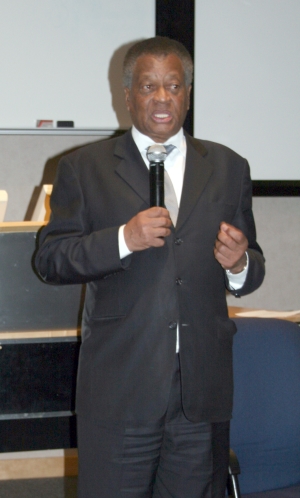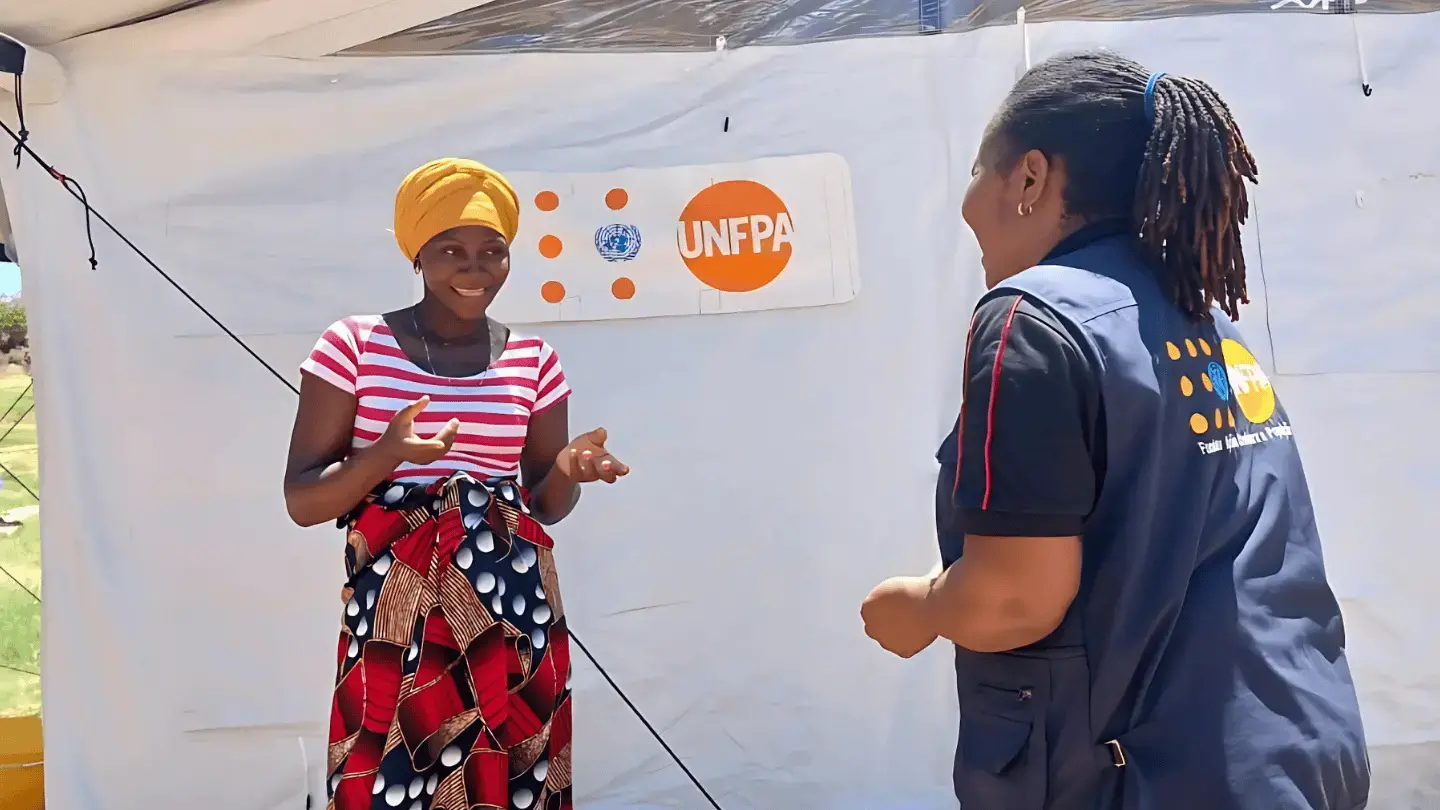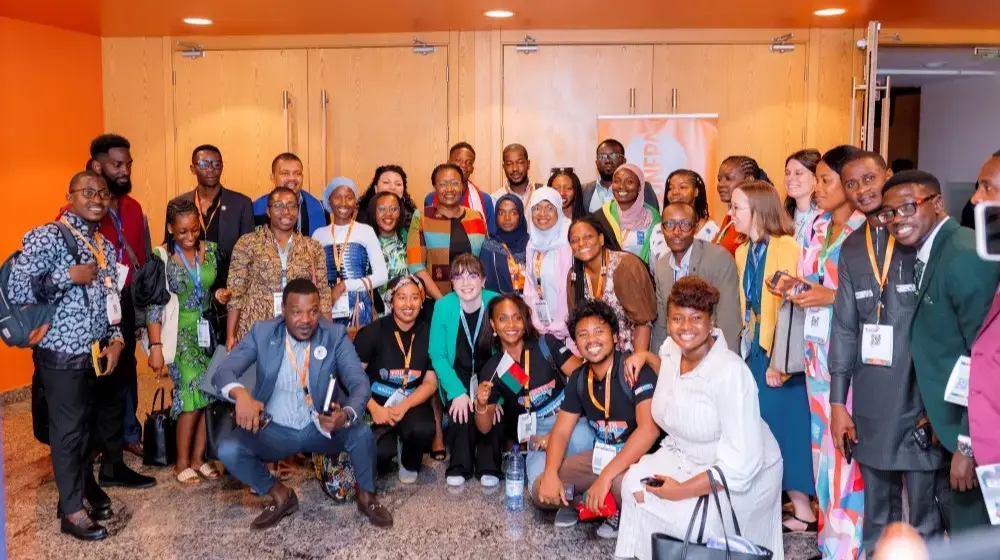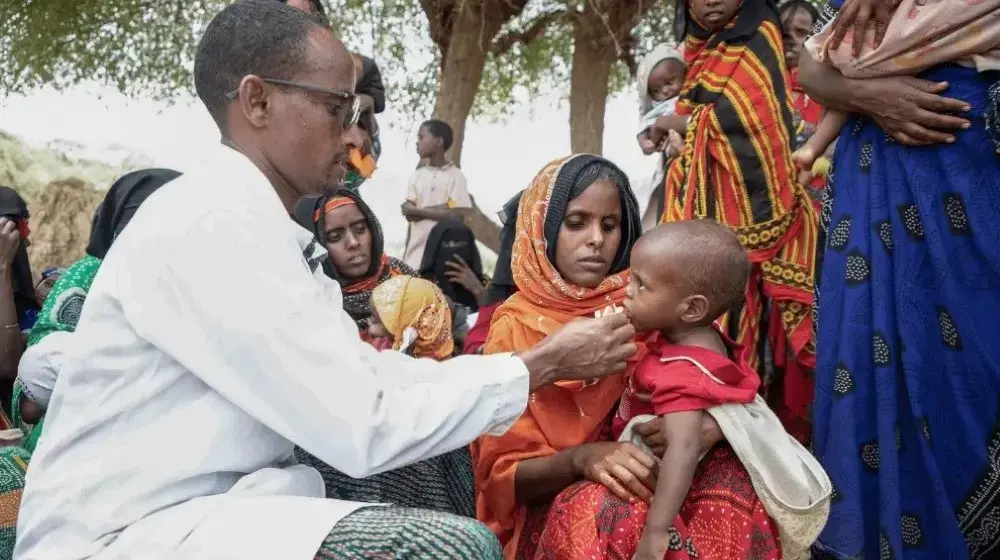JOHANNESBURG, South Africa — The United Nations (UN) and other agencies must continue to support South Africa to ensure that the freedoms that were fought for in the struggle against apartheid are maintained. “We need continued support to achieve the betterment of the lives of our people,” said Max Sisulu, Member of Parliament (MP) and Speaker of the National Assembly, South Africa.
As the guest speaker at an Occasional Seminar at the UN regional offices in Johannesburg on 23 May, Mr. Sisulu addressed UN staff on ‘South Africa and the Millennium Development Goals: Prospects for the 2015 Development Agenda’.
The support of the UN had been tremendous, but he urged the UN to strengthen this partnership in order to tackle the many challenges now being faced in South Africa – among them poverty, inequality and climate change.
The seminar was organized by the United Nations Population Fund (UNFPA) East and Southern Africa Regional Office together with the Office of the United Nations Resident Coordinator/UNDP Resident Representative, and the United Nations Development Programme (UNDP) in Johannesburg, South Africa.
The son of struggle veteran Walter Sisulu, who died in 2003, Mr. Sisulu was introduced by Bunmi Makinwa, UNFPA Regional Director for East and Southern Africa (ESARO).

Parliamentarians play a role in achieving MDGs
Mr. Sisulu thanked the UN for its support during the years of the struggle against apartheid. The Millennium Development Goals (MDGs) provided a commitment to achieve greater prosperity and fulfillment, he said. Parliamentarians had a role to play in achieving the MDGs and the post-ICPD agenda in that they provided an enabling policy environment. “Some of the targets may not be reached, but then they may not have been realistic. But they give us the opportunity to ask, where did we go wrong, and what do we need to do to redeem the pledges we made to people about improving their quality of life,” he said.
South Africa aims to improve the quality of its members of parliament in order to improve the quality of legislation and Government oversight, he said. “Strong parliaments are effective parliaments. It is essential that our Members of Parliament have the knowledge and skills they need.” He described the capacity development programmes that MPs and members of provincial legislatures had taken part in, an achievement of which he was proud. “We would like this to continue and also to involve local governments, to enable people to become better at what they do.”
In paying for MPs’ studies, the South African Parliament was setting a benchmark for parliaments around the world, he said. “We need to ensure that the laws we make are in keeping with our Constitution, and we will work with organizations of civil society and the UN to ensure these laws stand the test of time.”
 |
UN expertise can help improve MPs' performance
In working to ensure that MPs perform better at their tasks, the support of the UN and its vast body of knowledge and experience was much needed, he said. However, one of the most critical challenges in the country was the issue of service delivery. He called on the UN to help the South African Government speed up service delivery and to help “unblock the blockages”.
Mr. Sisulu said Government policies were too focused on growth at the expense of the distribution of services to ordinary people, and criticized the current economic model. “We must pay more attention to the nature and quality of our growth, as strong growth doesn’t lead to human development. We need to focus on social and environmental progress too.”
Post-2015 development agenda needs MPs' support
He advised that the new development framework should include a goal on democratic governance. In conclusion, he said that the post-2015 development goals would not have as great an impact as the MDGs unless they had the support of parliamentarians.
Mr. Sisulu’s statement was followed by a number of questions from the audience, to which he responded. The discussion was followed by a reception and a working dinner for Mr. Sisulu, heads of UN agencies and senior UN officials.
The occasional seminar is a forum for interaction and learning between institutional gatekeepers in the socio economic, political, and cultural spheres in Africa and the UN staff in South Africa. It provides an opportunity for UN staff to learn about the changing political, social and economic dynamics in the region.
~ Lindsay Barnes, UNFPA ESARO





